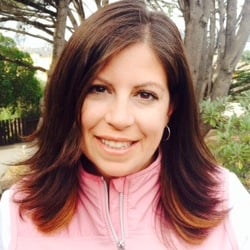“We need to debrief” said the nurse manager after the medical team walked out of the critical care room after pronouncing a child who died after a traumatic accident. The social worker pointed at me (I am a Child Life Specialist) and looked at her and said “It’s our code blue now. We have to wait. We have a job to do”. Which was her way of saying we still had a lot of work to do with the family. At that point I walked in a room with the social worker and devastated parents, where the patient’s brother waited. He looked at me with big eyes and wanted to know if his sibling was ok. Not a conversation I would wish upon my worst enemy.
How do you support a family during the most horrible day of their life? How you do move on yourself when you have a job where you can’t tell anyone in your life about your day? How do you walk back into the hospital after a child has died on your watch?
No person in my life knows how many children I have said goodbye to, and I honestly am not sure myself. It has been too many. I’ve held siblings’ hands and cried with parents. I’ve been strong and supported doctors when they have said, “there is nothing more we can do”. I’ve been in the room with entire families while we watch their child slip away and seen the most brutal CPR on tiny fragile children. I have done handprints… so many handprints on children who have died. I hate handprints. But I do them, because I know how and the family needs me to.
A very wise social worker said to me once:
There is a point in our care where we have to give the family back to their family and friends, it’s our job to give them as much support and as many tools as we can so that they can survive after we do our job and give them back.
When my job is done, I’ve hugged the parents, made the proper referrals, and sent them home with their families. I’ve got to go back to work. I’ve had moments where a death has had no effect on me, and I think my heart has turned to stone. I have also had moments where I felt like saying screw this place, call my manager, and get myself sent home. However, more times than not, I’ve taken a few minutes and gone on walks and cried my eyes out. I’ve gone to a favorite social worker or a friend at work and talked it out. I can’t tell my husband or family about it, because I love them too much to give them that visual… and they just wouldn’t understand.
My advice is simple. Take care of yourself, and walk away from every situation knowing that you have done everything in your power to help someone through the most difficult day of their life. That means something. It has to.
Author information
The post Child Whisperer Series: After the Pediatric Code Blue appeared first on ALiEM.

